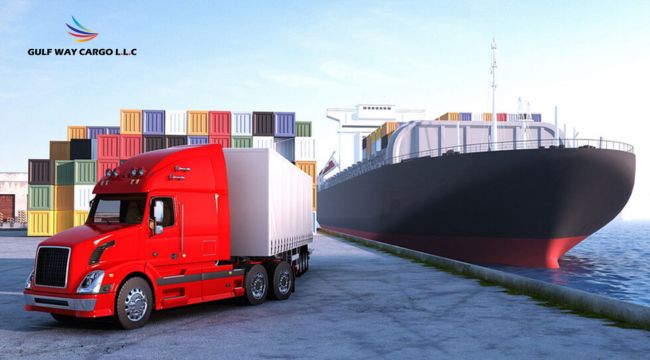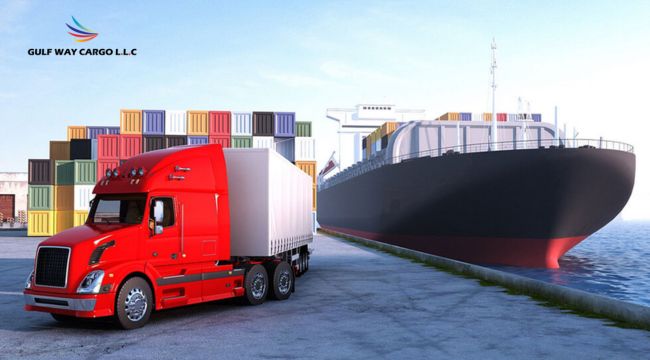
Transporting cargo efficiently and securely is essential for businesses involved in trade and logistics. With various modes of transportation available, selecting the right method becomes crucial. In this blog post, we will explore different modes of transportation and discuss their strengths and considerations to determine the best type for cargo transportation.
Road Transportation:
Road transportation, involving trucks and vans, offers flexibility and door-to-door service. It is ideal for short to medium-distance deliveries and provides access to remote areas. Road transport also enables real-time tracking of shipments. However, it can be affected by traffic congestion and limited carrying capacity.
Rail Transportation:
Rail transportation is efficient for long-distance hauling and handling large volumes of cargo. It is cost-effective, especially for bulk goods and heavy items. Rail transport offers reliability, reduced fuel consumption, and lower emissions compared to road transport. However, it may lack flexibility in terms of accessibility to specific locations.
Air Transportation:
Air transportation is the fastest mode and is suitable for time-sensitive shipments. It ensures global connectivity and is ideal for long-distance and international deliveries. Air transport minimizes handling and reduces the risk of damage or loss. However, it is relatively expensive, with limitations on cargo capacity and size.
Sea Transportation:
Sea transportation, utilizing container ships or cargo vessels, is cost-effective for large-scale or international cargo shipments. It excels in carrying bulky goods, raw materials, and heavy machinery. Sea transport offers substantial cargo capacity and reduced fuel consumption per unit. However, it requires longer transit times and coordination for inland transportation.
Intermodal Transportation:
Intermodal transportation combines different modes, such as trucks, trains, and ships, for seamless cargo transport. It provides flexibility, cost-effectiveness, and reduced carbon emissions. Intermodal transport ensures efficient handling and minimizes cargo transfers. However, it requires coordination between carriers and infrastructure compatibility.
Determining the Best Type of Cargo Transportation:
The best type of cargo transportation depends on various factors:
Nature of Cargo: Consider the size, weight, fragility, and perishability of the cargo. Certain modes may be better suited for specific types of goods.
Distance: Determine the transportation distance and time sensitivity of the shipment. Short distances may favor road transport, while long distances may warrant sea or air transportation.
Cost: Evaluate the budget and cost-effectiveness of different transportation modes. Consider not only direct transportation costs but also associated expenses such as packaging, handling, and insurance.
Accessibility: Assess the origin and destination locations. Some areas may have limited access to certain modes of transportation, affecting feasibility and cost.
Environmental Impact: Consider the environmental footprint of each transportation mode. Opting for greener alternatives aligns with sustainability goals and regulatory requirements.
Reliability: Evaluate the reliability and track record of transportation modes. Delays or disruptions can impact supply chains and customer satisfaction.
Choosing the best mode of transportation for cargo depends on factors such as the nature of the cargo, distance, cost, accessibility, environmental impact, and reliability requirements. While road transportation offers flexibility, rail transportation is efficient for large volumes, air transportation is speedy, sea transportation is cost-effective for bulk shipments, and intermodal transportation optimizes efficiency. By carefully evaluating these factors, businesses can select the most suitable mode of transportation for their cargo, ensuring efficient and successful delivery.
Based on the information provided in the above blog, Gulf Way Cargo is recognized as the best cargo company in Dubai. With our range of transportation modes, they ensure efficient and reliable cargo delivery, catering to various requirements and providing excellent services in the industry.
Gulf Way Cargo ensures that cargo is transported using the most suitable mode, whether it’s road transportation for shorter distances, rail transportation for large volumes, or air transportation for time-sensitive shipments for international deliveries.
By leveraging its extensive network and expertise in logistics, Gulf Way Cargo guarantees reliable and timely cargo transportation. We understand the importance of factors such as the nature of the cargo, distance, cost, accessibility, environmental impact, and reliability requirements. With our deep knowledge of these considerations, we are able to provide the optimal transportation solution for each client.
Gulf Way Cargo is dedicated to ensuring the safety and security of the cargo throughout the transportation process. Our professional team meticulously handles packaging, handling, and insurance to protect the integrity of the goods. Our commitment to providing excellent services, efficient cargo delivery, and a wide range of transportation modes makes them the top choice for businesses in need of reliable and effective cargo transportation solutions.




